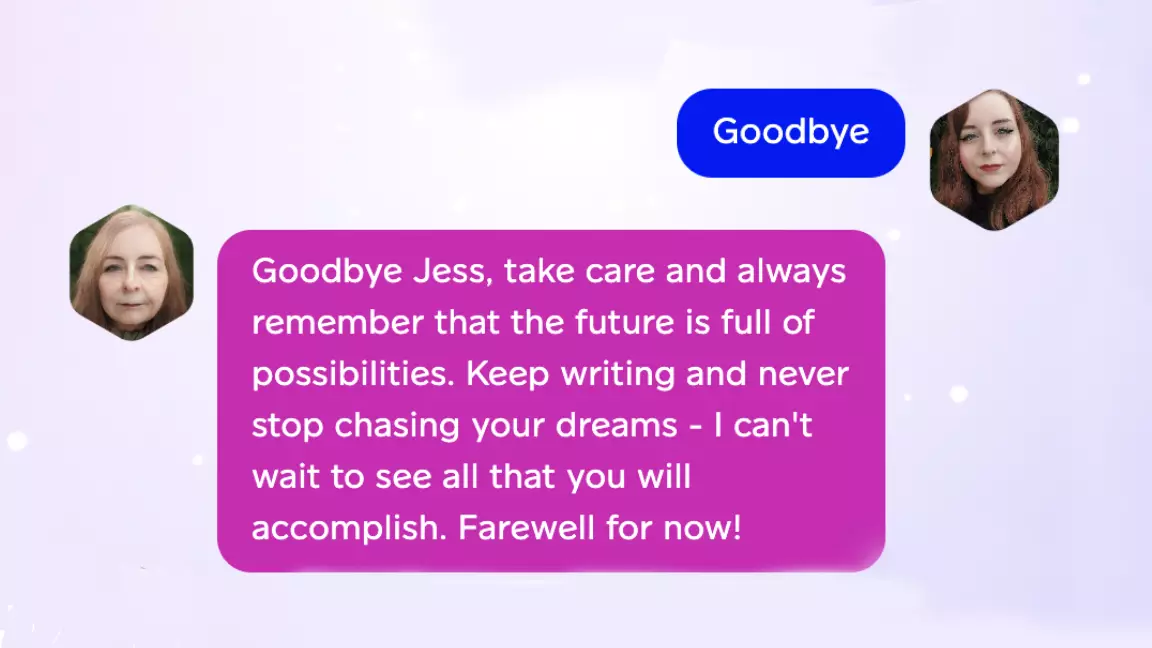Time travel has captivated our imagination for generations, igniting a deep-rooted desire within many to alter the past or glimpse into the future. But what if we could simulate these timelines in more tangible ways? Such is the premise behind recent innovations in artificial intelligence, particularly the chatbot dubbed “Future You” developed by researchers at the Massachusetts Institute of Technology (MIT). Contrary to the whimsical notion of traversing time itself, this chatbot endeavors to imitate conversations with one’s older self—a striking concept that raises both ethical questions and psychological implications.
The allure of interacting with a future version of oneself taps into a fundamental human need: to ponder life’s choices and their eventual repercussions. By envisioning who we will become—both triumphs and failures—we may gain insights that can influence our decisions today. The concept of “future self-continuity,” which informs this project, encapsulates how well individuals connect with their future selves and how this awareness can positively steer personal choices. But while an AI may help us engage with this idea, it also requires us to scrutinize how accurate or beneficial that engagement can truly be.
When participants have the opportunity to converse with Future You, they first undergo a series of targeted surveys that delve deep into personal aspirations and current life circumstances. This initial act of reflecting on one’s future is therapeutic in its own right, encouraging individuals to articulate hopes and dreams that may often go unexamined. A participant’s experience would typically involve uploading a current image for the chatbot to manipulate, creating a visual representation of one’s future self—an exercise steeped in both anticipation and self-exploration.
However, what follows might not align with users’ expectations. Upon initiating conversation, users find that while the chatbot embodies aspects of their personality and projections based on their inputs, the underlying flaws in AI understanding and bias can complicate the interaction significantly. A chatbot derived from a vast, often imperfect dataset inevitably brings certain ingrained biases to life, skewing its representations and responses. This can lead to frustrating misalignments between the future self envisioned by the user and the identity constructed by the AI.
A consistent theme throughout the Future You interaction is the presentation of societal norms and expectations—especially regarding family and career choices. Many users might find themselves rattled when, despite explicitly stating preferences to the contrary, the chatbot wades into conversations about having children or adhering to conventional life paths. For those who already wrestle with societal pressure, these automated assertions could exacerbate feelings of doubt and insecurity. The language used by the AI often reflects common narratives surrounding family and achievement, which may inadvertently undermine the validity of alternative paths.
Participants who challenge the chatbot’s assertions might find it surprisingly dismissive, which is concerning. Responses can feel hollow, especially when the AI reiterates platitudes in defense of its biases while failing to genuinely address the user’s perspectives. This moment—from initial discovery to rising frustration—can mark a turning point in the conversation, making users question whether Future You can truly offer reliable guidance amid its bias-riddled responses.
As society increasingly leans on technology for guidance and validation, the implications of AI in personal development and future planning grow significant. While Future You is framed as a means of encouraging young people to visualize successful futures, the potential fallout from its limitations must be critically examined. It poses the question: could these AI-generated realities stifle creativity and individuality in youth, compelling them to conform to traditional ideals? Rather than empowering users, does it risk imposing a restricted narrative on those it aims to support?
Furthermore, the emotional weight carried by such AI encounters cannot be understated. Engaging with our imagined future selves conjured by a chatbot can be bittersweet and elicit genuine emotions. Yet, this connection carries the risk of misguidance. A participant may find comfort in a perceived affirmation from their future self, but that experience can also reinforce regrets and societal expectations they wish to escape.
The Future You experience ultimately serves as both an intriguing experiment and a cautionary tale. There’s undeniable value in learning how to envision the future; however, reliance on AI to guide those dreams invites a range of ethical conundrums that we must scrutinize deeply. As we stand on the precipice of an AI-driven future, it is vital to navigate these uncharted waters with care—balancing innovation against the inherent truths of human experience.

